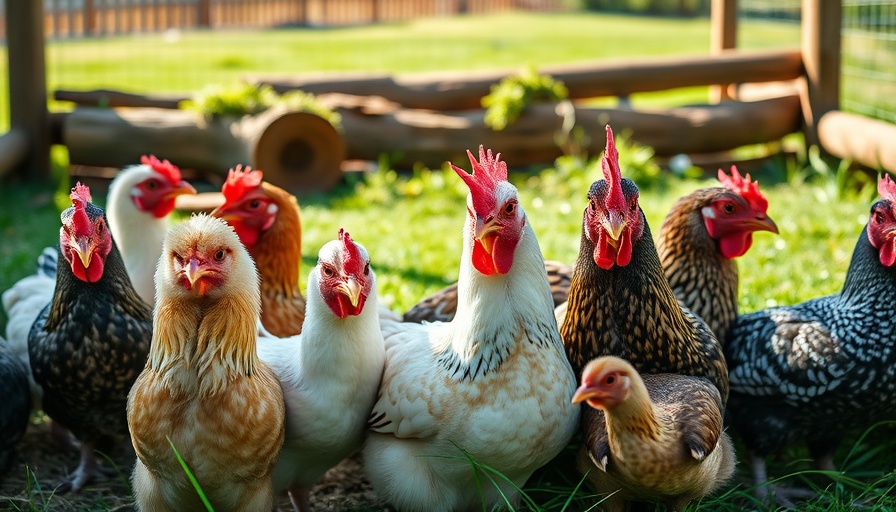
Exploring the Joy of Avian Companionship
Welcoming a new feathered friend into your home is not just a decision; it's a journey steeped in joy and responsibility. Chickens, with their quirky personalities and diverse traits, have increasingly become popular choices for families and individuals alike. There’s much more to owning these birds than merely offering food and shelter — it’s also about creating a supportive and engaging environment.
Why Chickens Make the Perfect Pets
Whether you are a novice or an experienced pet owner, chickens can enrich your life in numerous ways. Beyond their role as egg producers, they provide fascinating insights into avian behavior. Their social structures, communication methods, and unique personalities can create a rewarding relationship between the owner and the birds. Research shows that interacting with chickens can lead to decreased stress and increased satisfaction in life.
Initial Considerations Before Bringing Home Chickens
Before diving into the world of chicken ownership, it's critical to consider local regulations, available space, and the specific needs of the chicken breeds suited for your lifestyle. Each breed has its own set of characteristics, including temperaments, egg production rates, and space requirements. This knowledge will help you select the right companions that align with your expectations and environment.
The Health Benefits of Keeping Chickens
Beyond companionship, keeping chickens can also yield health benefits. Studies suggest that exposure to animals can boost immunity and lower the incidence of allergies in children. Chickens contribute to a healthier lifestyle, encouraging outdoor activities and teaching responsibility, particularly for young owners.
In conclusion, welcoming chickens into your home is a decision that brings multifold benefits— emotional, educational, and even physical. If you're ready to embark on this rewarding journey of avian companionship, take the time to research and prepare for your new role as a chicken caretaker!
 Add Row
Add Row  Add
Add 




Write A Comment